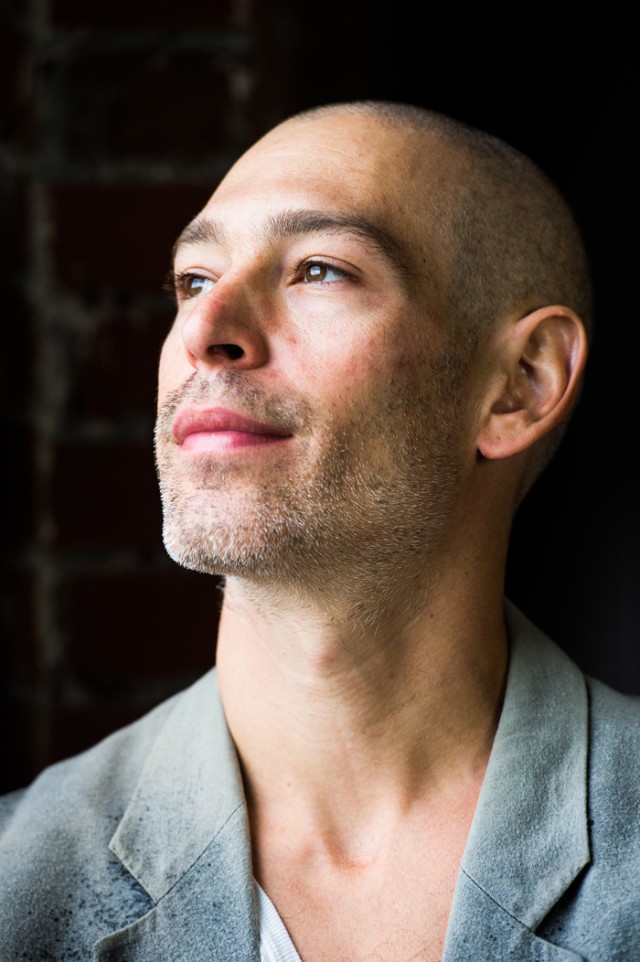
Aside from ZZ Top, probably no other music artist could cause more of a commotion by shaving a beard than Matisyahu.
While ZZ Top’s Billy Gibbons and Dusty Hill have not taken a razor to their signature facial hair, Matisyahu went clean-shaven and trimmed his hair in December 2011. It radically altered his appearance, but registered with audiences on a much deeper level because of what the whisker whacking represented to an entire population.
As music’s leading Hasidic Jewish artist, Matisyahu had inspired a legion of people who also followed his religion in ways that went beyond his music. Matisyahu set an example for how to follow the Orthodox Jewish religion, yet also assimilate into society as a whole and enjoy such secular pursuits as going to concerts and clubs or partying.
Although he tried to explain that he had not rejected his Jewish faith and had only decided he could not live by certain specific rules that are part of the religion, the change in Matisyahu’s appearance, as well as the absence of a Yarmulke as part of Matisyahu’s clothing caused plenty of consternation and questions.
Three years and two albums (2012’s Spark Seeker and the new release Akeda,) later, Matisyahu (Matt Miller is his secular name) says he has yet to get a good read on how going clean-shaven has impacted his image.
“There are some people who get it and there are some people that don’t, and that’s what it is,” he said in a mid- August phone interview. “I have no control over who understands my life and who doesn’t understand it and who understands my music and who doesn’t. And I try not to spend too much time really thinking, or worrying or even reading comments about it. I’m busy kind of living my life. And so yeah, that’s the gist of it. There was a time when I was really affected by all of the stuff I was reading online and I just stopped reading that stuff.”
Up until he revealed his new look, Matisyahu hadn’t had to deal with much in the way of criticism. Now 35, he started to get on the music scene radar with his independently released 2004 debut album, Shake Off the Dust…Arise. That was followed in 2006 by the concert CD, Live At Stubb’s, which was picked up for release by Epic Records and gained the attention of the mainstream media.
He was praised for his sound, a blend of reggae, hip-hop and rock, and for the spiritual, uplifting messages in his lyrics. He ended 2006 riding a wave of popularity, as his second studio album, Youth, had debuted on the Billboard album chart at number four and a single from the album, “King Without a Crown,” had gone top 10 on Billboard’s Modern Rock chart.
That song remains Matisyahu’s biggest hit, but his subsequent studio albums — 2009’s Light and Spark Seeker — have also received favorable reviews, while doing well enough commercially to solidify his place as one of reggae’s top artists and keep him on the mainstream rock/pop radar.
Those two albums, as well as Akeda, have also helped show that Matisyahu’s music extends well beyond the reggae sound that first gained attention.
The latest album is especially diverse. Hip-hop remains a core element, blending with electronic pop on “Star On The Rise” and “Vow Of Silence.” There is also tuneful rock on the horn-filled “Watch The Walls Melt Down,” “Reservoir” and pop on “Built To Survive” and “Ayeka (Teach Me To Love).”
Meanwhile, reggae, which had been less pronounced on Light and particularly Spark Seeker, returns in a prominent way on the songs “Black Heart” and “Confidence.”
“I think my music has always been really diverse. It’s always had this, you know, really I think, unique mixture of genres,” Matisyahu said. “Because I was so heavily influenced by this dancehall conscious reggae music in the early 2000s, when I was really developing my voice, that was the main voicing that I used. But throughout time, I’ve always dipped into different things and combined different things.”
Always a dynamic live performer, Matisyahu will have his backing group, the Dub Trio, plus guitarist Dugan on tour with him. Fans can expect to hear a lot of Akeda in the show, as well as a couple of tracks each from his previous albums. He’s also making room in the shows for spontaneity and improvisation.
“The high point to the show, to us, and the reason why I do what I do is not really to go out there and play ‘One Day’ [a top 25 modern rock single from the Light album] or even to play the new songs,” Matisyahu said. “It’s that moment during the improvisation, when we do something unique, when we do something that hasn’t happened before, and I feel a sort of unlocking happen, something open up and [it’s] in those moments when I speak to God and I feel that I’m speaking authentically. That’s why I continue to do this and that’s what I’m trying to search for from night to night, for those moments.”
Respond: [email protected]














